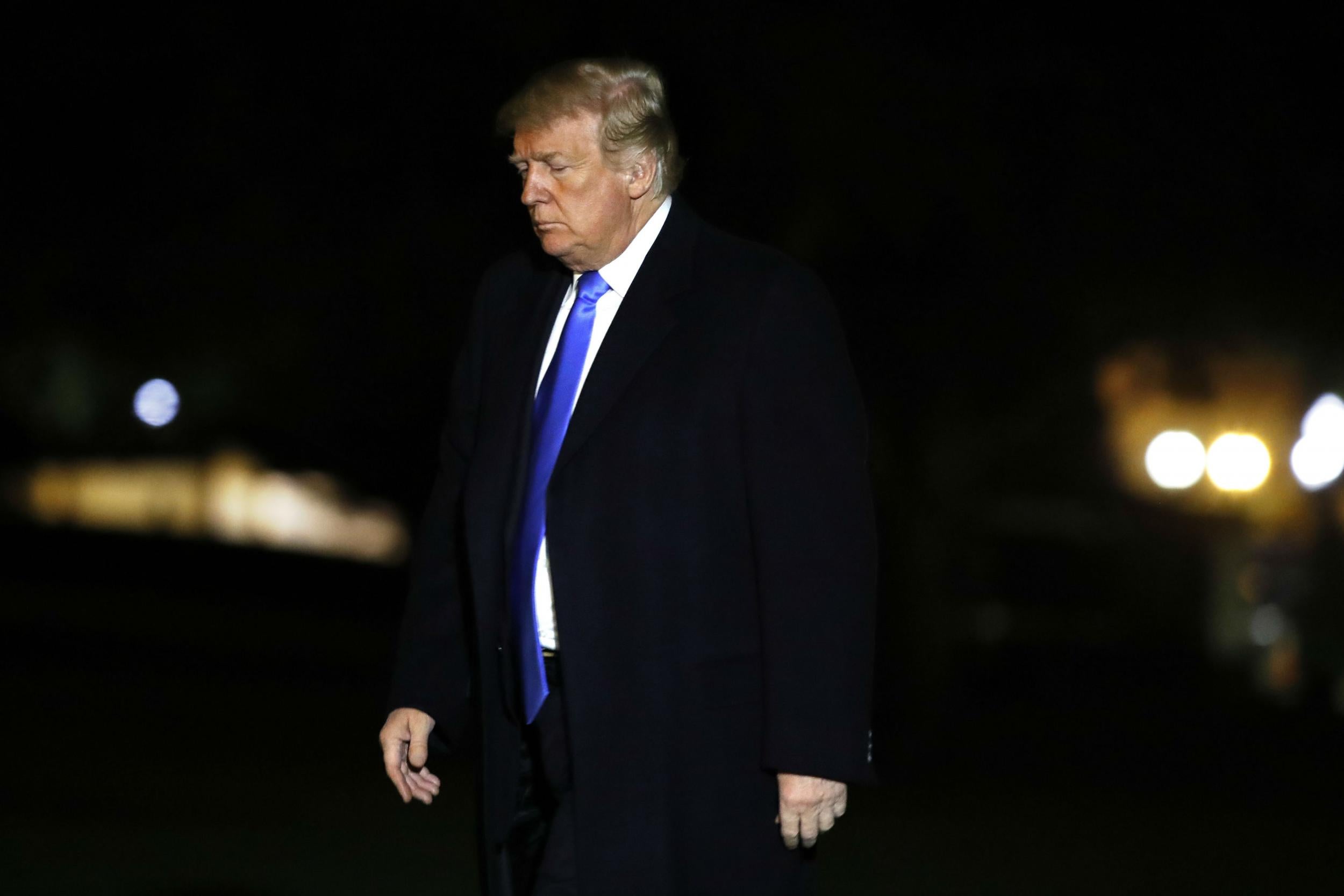Midterms 2018: Republicans shift resources from House candidates 'too far gone' as Trump contemplates defeat
'Democratic candidates are outspending Republican candidates in key races by $50m'

Your support helps us to tell the story
From reproductive rights to climate change to Big Tech, The Independent is on the ground when the story is developing. Whether it's investigating the financials of Elon Musk's pro-Trump PAC or producing our latest documentary, 'The A Word', which shines a light on the American women fighting for reproductive rights, we know how important it is to parse out the facts from the messaging.
At such a critical moment in US history, we need reporters on the ground. Your donation allows us to keep sending journalists to speak to both sides of the story.
The Independent is trusted by Americans across the entire political spectrum. And unlike many other quality news outlets, we choose not to lock Americans out of our reporting and analysis with paywalls. We believe quality journalism should be available to everyone, paid for by those who can afford it.
Your support makes all the difference.Republicans are shifting limited resources away from candidates they fear are “far too gone”, as they face a wave of Democrat enthusiasm and fund-raising that seems set to give them control of the House of Representatives.
With barely three weeks before the midterm elections on November 6, officials and aides are trading in recriminations and finger-pointing, as they appear to be faced by a “blue wave”. At the same time, the White House is reaching out to Democrats on Capitol Hill, in preparation for having to deal with them after the autumn ballot.
"We're starting to hone in on what are the races we can actually win. Sometime that requires a hard conversation,” Spencer Zwick, the fundraising chief for House Speaker Paul Ryan, told the Associated Press.
The AP painted a picture in which the party was not only looking at polls suggesting many suburban voters, especially white women, had been turned off by Mr Trump’s frequently racist and misogynistic language, but a fundraising shortfall compared to Democrats.
Last week, Politico reported that since the end of July, Republican candidates in the 70 most contested races had reserved $60m in television advertising, compared to $109mn for Democrats. It said the disparity was likely to grow as former New York City Mayor Michael Bloomberg moves ahead with a proposal to spend nearly $80m to help Democrats seize the house.
“From Democrat candidates to outside groups, we’ve never seen anything like this before,” said Brian Walsh, president of America First Action, a pro-Trump super PAC. “They are dumping in cash by the truckload.”
In as many as 12 of the 30 seats considered a toss-up among the total 435 being contested this autumn, Mr Ryan’s organisation was the only providing any funding.
“The GOP is now facing a green wave,” Corry Bliss, who leads the group, known as the Congressional Leadership Fund, told the AP. “Democratic candidates are outspending Republican candidates in key races by $50m.”
The National Republican Congressional Committee did not immediately respond to enquiries on Monday. Mr Zwick also did not reply.
The AP said in recent days the NRCC had cancelled plans to help at least three vulnerable Republican candidates - Kevin Yoder in suburban Kansas, Keith Rothfus in suburban Pittsburgh and businesswoman Lea Marquez Peterson in Tucson, Arizona. The three candidates have yet to confirm this.
But Republicans are not giving up entirely. While most political analysts believe the Democrats will do well enough to take the house, they say the nature of the races for the senate suggests Republicans will retain control.
Democrats are defending around two dozen senate seats, including ten in states such as West Virginia and North Dakota, that Mr Trump won in 2016 with a huge margin. They need a net total of two seats.
Republicans say that recent events such as the confirmation battle over Brett Kavanaugh fired up the base of Mr Trump’s support, after he was able to portray his nominee as the victim of a politically-motivated campaign by Democrats.
Charlie Cook, founder of the bipartisan Cook Political Report recently said he believed Democrats would gain between 20 and 40 house seats.
“It would appear that Kavanaugh confirmation fight was a “colour-enhancing event,” making the “reds” redder & the “blues” bluer,” he tweeted.
“Helps Democrats in House & Republicans in the Senate. Will also tend to help Democrats in governor races and state legislatures. Of course the blue wave is really pink.”
Meanwhile, it was reported the White House is making overtures to Democrats about working together next year, a sign the Trump administration believes it at least possible Republicans will lose control of the house, the place where most legislation starts life and where any attempt to impeach the president would begin.
“The president’s always ready to deal. Always,” Shahira Knight, the White House legislative director, told The Hill.
Join our commenting forum
Join thought-provoking conversations, follow other Independent readers and see their replies
Comments